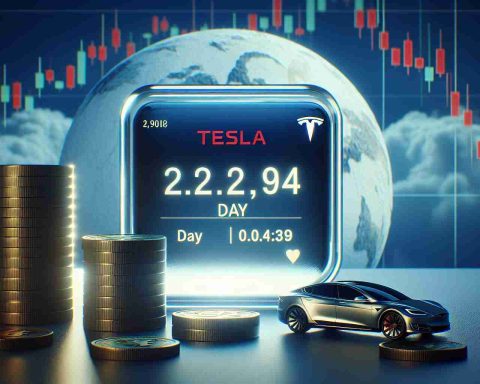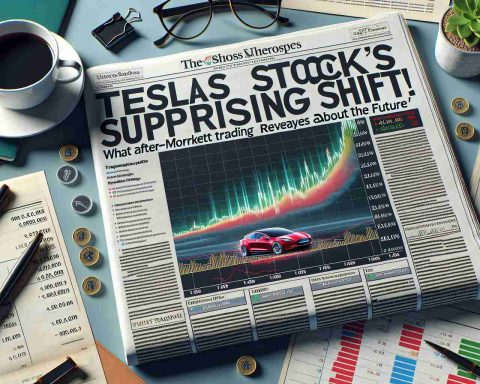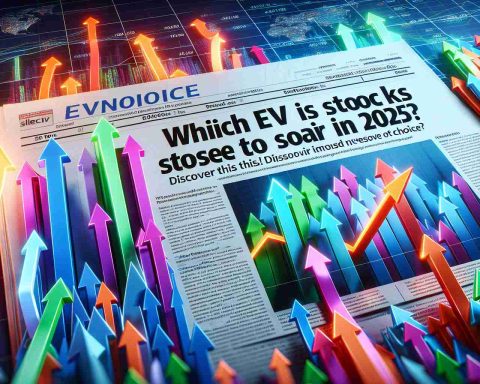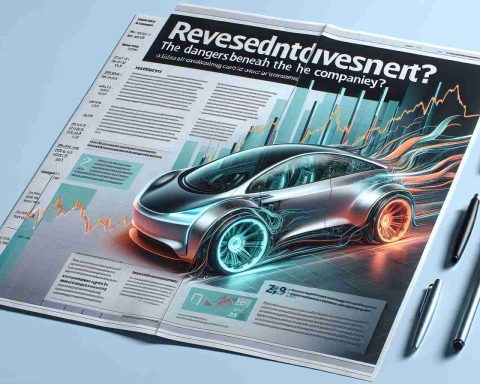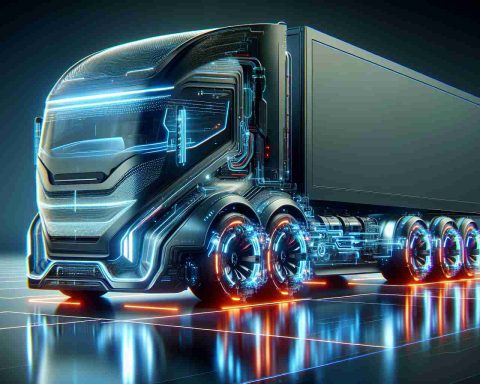The Future is Uncertain for Tesla Investors
Tesla’s stock has soared in recent months, nearly doubling in value, as investors anticipate groundbreaking developments from the electric vehicle giant. While Tesla is widely recognised for its electric cars, it is increasingly viewed as a technology innovator, with ventures into autonomous driving and humanoid robotics at the forefront.
The momentum behind Tesla’s stock price seems propelled by expectations surrounding its expansion into new tech markets rather than its vehicle production alone. Plans for the Cybercab ride-sharing service and the rollout of the Optimus robot have captured investor interest. Moreover, CEO Elon Musk has positioned the company favourably within the evolving regulatory landscape, potentially smoothing the path for future innovations.
Yet, despite this optimistic outlook, investors must remain cautious. Tesla’s current automotive business remains its predominant revenue source, and fundamental financial aspects could impact its stock performance. The stark contrast between Tesla’s valuation and that of traditional automakers raises concerns, with Tesla’s price-to-sales ratio indicating significant premium compared to peers like Toyota.
Ultimately, while the potential of Tesla’s future product lines is exciting, the current lofty stock price might not accurately reflect present realities. Those considering investing should thoroughly evaluate the company’s financial fundamentals and be prepared for possible volatility. Waiting for a clearer indication of market performance might prove beneficial for potential investors.
The Broader Impact of Tesla’s Innovations on Society and the Environment
Tesla’s influence extends well beyond the auto industry, reshaping societal perceptions of sustainable energy and technological progress. As electric vehicles gain traction, their adoption is facilitating a significant shift in consumer attitudes toward sustainability. More than just a vehicle manufacturer, Tesla is positioning itself as a leader in a global movement toward decarbonisation, influencing how companies approach climate change amid rising awareness of environmental issues.
On a cultural level, Tesla’s advancements in autonomous driving are sparking discussions about the future of mobility. Is the emergence of self-driving technology a harbinger of reduced traffic fatalities and urban congestion, or does it raise ethical dilemmas in decision-making algorithms? As society navigates these questions, the implications for urban planning and public safety policies could be profound.
The economic ramifications are equally significant. Tesla is not merely a carmaker; it symbolises the potential for technological disruption within traditional industries. The ripple effect could stimulate job growth in tech-related fields while simultaneously challenging existing employment in traditional automotive sectors. Additionally, global supply chains are shifting as demand for lithium, nickel, and rare earth materials surges, potentially leading to geopolitical tensions over resource management.
Looking ahead, as Tesla pivots to robotics and AI, the potential acceleration in productivity could transform various sectors, from manufacturing to healthcare. With electric vehicles poised to dominate the market, the long-term significance of Tesla’s innovations may redefine our economic infrastructure. Thus, investors and consumers alike must recognise their role in a rapidly evolving landscape shaped by technological and environmental imperatives.
Is Tesla’s Stock Still a Safe Bet? Unveiling the Future for Investors
## The Current Landscape of Tesla’s Market Position
Tesla Inc. has become a bellwether in the electric vehicle (EV) market, yet the future remains uncertain for investors. With the stock experiencing significant gains in recent months, it’s essential to dissect not only Tesla’s current innovations but also the financial realities that underpin its market valuation.
Features of Tesla’s Expanding Portfolio
1. Autonomous Driving Innovations:
Tesla continues to push the boundaries of autonomous driving technology, with its Full Self-Driving (FSD) package now in use by a considerable number of drivers. Future updates aim to enhance the functionality, contributing to Tesla’s mission of reducing accidents and enhancing vehicle safety.
2. Humanoid Robotics Developments:
The introduction of the Optimus robot exemplifies Tesla’s ambition beyond automotive manufacturing. This humanoid robot, aimed at performing various tasks and supporting businesses, could potentially open new revenue streams and disrupt industries.
3. Cybercab Ride-Sharing Service:
Tesla’s foray into the ride-sharing space with its planned Cybercab service represents another significant pivot. The model relies heavily on Tesla’s self-driving capabilities, potentially redefining urban transportation while providing another dimension to its business model.
Pros and Cons of Investing in Tesla
Pros:
– Technological Leadership: Tesla maintains a clear advantage in EV technology and autonomous driving systems, positioning it as a leader in the automotive tech space.
– Innovative Vision: With ambitious projects like the Optimus robot and Cybercab, Tesla showcases a dedication to innovation that could yield substantial long-term profits.
Cons:
– High Valuation Risks: Tesla’s price-to-sales ratio is notably higher than traditional automakers such as Ford and General Motors, which raises concerns over the sustainability of its current valuation.
– Reliance on Automotive Sales: Despite branching into tech, Tesla’s automotive sales still represent the bulk of its revenue, making it vulnerable to fluctuations in this market.
Market Comparisons and Financial Insights
When analysing Tesla’s market position, it’s important to compare its valuation against that of legacy automotive companies. While traditional automakers are generally seen as undervalued, Tesla’s current market cap exceeds that of several well-established competitors. This discrepancy warrants careful financial analysis.
# Financial Fundamentals to Evaluate
Potential investors should consider several key financial metrics:
– Revenue Growth: Examine Tesla’s quarterly earnings reports for signs of sustainable revenue growth.
– Profit Margins: Understanding Tesla’s profit margins compared to competitors is crucial for evaluating its long-term viability.
– Debt Levels: High levels of debt can pose risks, particularly if economic conditions change.
Trends and Future Predictions
Looking ahead, the EV market continues to expand rapidly. Analysts project that Tesla’s stock may experience volatility due to several external factors, including global supply chain issues and regulatory changes. However, should Tesla successfully execute its ambitious plans, including scaling production and enhancing technology, the long-term outlook remains favourable.
Conclusion
In summary, while Tesla represents an exciting investment opportunity due to its innovation and market leadership, the current stock price may not fully reflect its financial health. Investors must conduct thorough due diligence, focusing on market trends, financial metrics, and Tesla’s strategic developments. As with any investment, especially those in rapidly evolving sectors, caution and preparedness for volatility are key.
For further insights into Tesla and the electric vehicle industry, visit Tesla’s official site.






